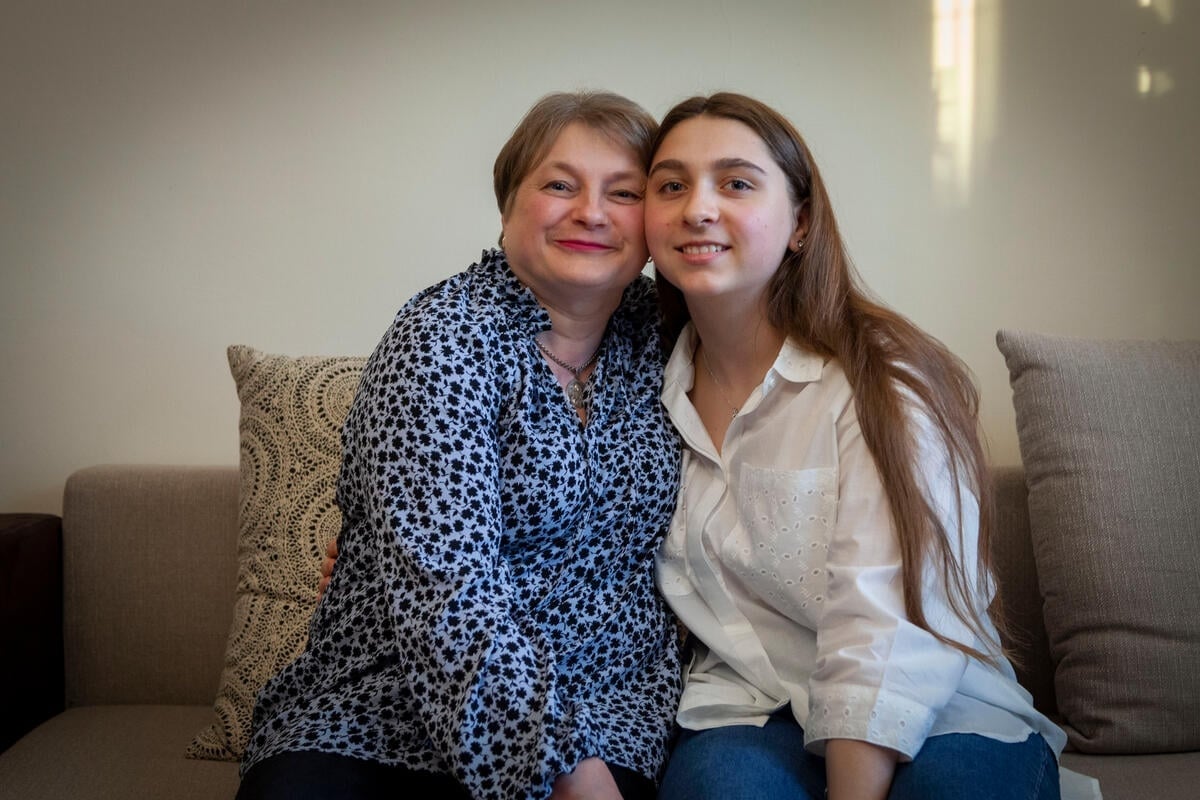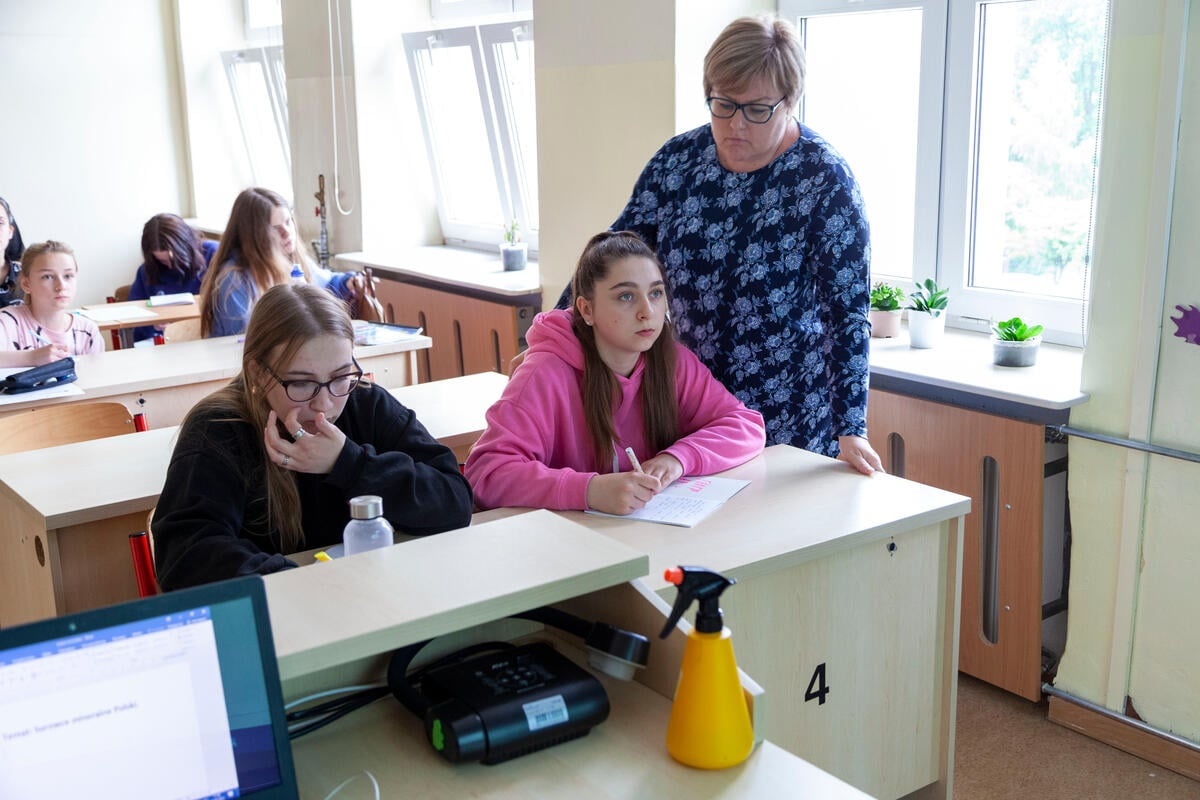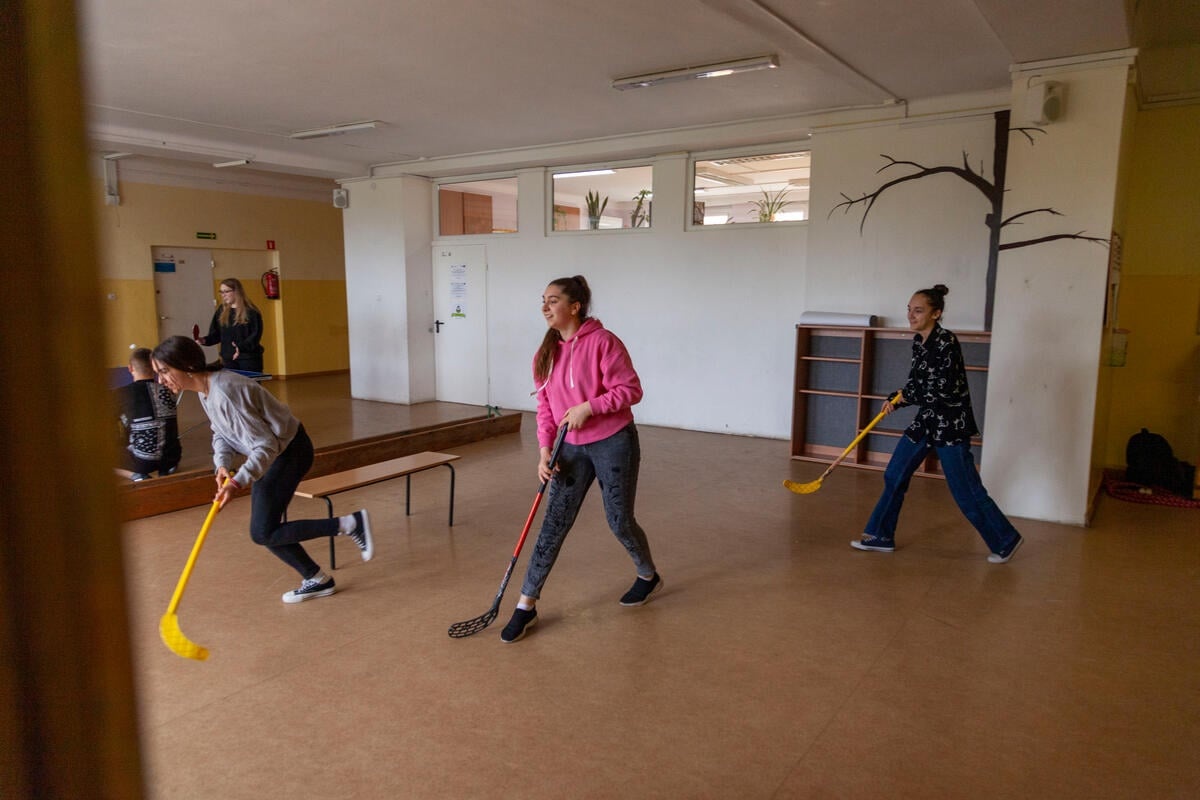Aspiring Ukrainian architect is building her future in a Polish school
Aspiring Ukrainian architect is building her future in a Polish school

Sofia, 13, a Ukrainian refugee, attends a geography class at Primary School no. 58 in Warsaw.
When Sofia fled her home in Ternopil region, western Ukraine, shortly after the international armed conflict began on 24 February, she thought she would be gone for perhaps a few weeks.
Months later, even regions well away from the front line are still affected by the war, and Sofia knows she may have to make plans for a future in Poland’s capital Warsaw, where she now lives. “I’ve realized it may be forever and if I return to Ukraine one day, it could be as a guest,” she says with the composure of someone who has taken time to reflect on her life ahead – even though she is all of 13 years old.
Leaving home, family and friends was hard but with explosions already rocking the region, Sofia’s parents agreed she should head for the border with a friend’s family and stay with her grandmother, who has been living in Poland for 30 years.
After a freezing 14-hour journey through the night on several buses crammed full of fellow refugees, Sofia found Zola, 55, waiting for her.
With Sofia out of danger, her grandmother was keen to find a school for her as fast as possible – not only so she could continue her studies, but also so the teenager would have somewhere safe to be while Zola worked long hours as a cleaner.
"Children need to go to school."
To begin with, Sofia was reluctant. “It wasn’t a priority for me – I told my grandmother it was just a matter of a couple of weeks then the war would be over and I’d be back in Ukraine,” she said.
Zola added: “We did not know how long the war would last – but children need to go to school.”
A nearby school was offering special classes for refugee children who did not speak Polish. “The first days were difficult,” Sofia recalls. “I didn’t know the language, I was surrounded by students and teachers speaking Polish. But the second day I felt calmer and a week later I got used to it.”
Wieslawa Dziklinska, director of Sofia’s school, said students who did not speak Polish followed the normal curriculum and got support from teaching assistants who translated and explained subject matter.
“For some it is a struggle,” Dziklinska said. “For others, is very easy and natural. Some resist, especially children who had ambitious plans like going to [specialist] music schools, taking language exams… It is a clash between what they had planned and reality.”
In class, Sofia is reserved but attentive, and her answers to teachers’ questions are thoughtful and often lengthy – a reflection, perhaps, of the time she has spent weighing up her options and making tough choices.
Sofia is just one of more than 400,000 school-aged refugee children from Ukraine registered so far with a Polish government identity number (PESEL), presenting the country’s authorities with a huge challenge. The government has guaranteed the right to an education for refugees from Ukraine, but the scale and speed of this crisis has strained the country’s school capacity and infrastructure.
By the end of the 2021-22 academic year, more than 180,000 Ukrainian learners had entered Polish schools, according to official figures. Of those, 80 per cent have joined mixed classes with Polish students. The remainder have attended “preparatory classes”, a system that exists in some form in most EU countries to help foreign children transition into host country public schools.
In preparatory classes in Poland, pupils follow the national curriculum and get intensive courses in Polish. Before the war, there were 15 students to a “prep” class; that has soared to 25.
Even with these solutions, hundreds of thousands of young refugees could need a place in a Polish school this coming academic year. The picture is clouded, however, by the ongoing war, which is preventing displaced Ukrainians from making long-term plans: according to a recent UNHCR survey, two-thirds expect to stay in their host countries until hostilities subside. Some have also travelled on to third countries.
See also: My advice to other kids as a refugee from Ukraine? Appreciate what you have
Refugees can also choose to have their children follow the Ukrainian curriculum online, virtually attending lessons made available by Ukraine’s Ministry of Education and Science – an option many families have taken in the hope they will be able to return to their former schools soon or enter Ukrainian universities in the future. Indeed, some families like their children to follow the Ukrainian curriculum online while they are also enrolled in a school in a hosting country.
For her part, Sofia is keen to press on with her education. Although her favourite subjects are a mix of biology, mathematics and literature, she dreams of becoming an architect. “I like the process of building houses, the process of designing a house using a computer program,” she says, rattling off a list of technical terms she has learned by watching videos online.
Sofia still often thinks about home. “I like it here, but I’d like to go back,” she says. “This [life in Poland] is new to me and I miss my village, my friends, the shops in Ukraine...”
This article is being published in the run-up to UNHCR's 2022 Refugee Education Report, which will be released on 13 September. The report is part of the UN Refugee Agency's involvement in the Transforming Education Summit, which will take place during this year's UN General Assembly.
For more information on UNHCR's education work, please contact:
- Becky Telford, [email protected]












